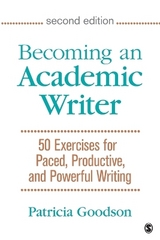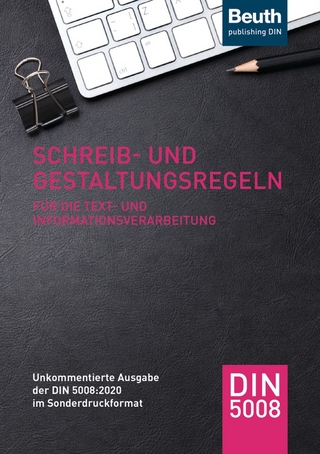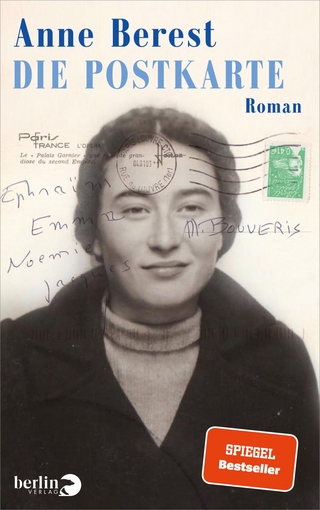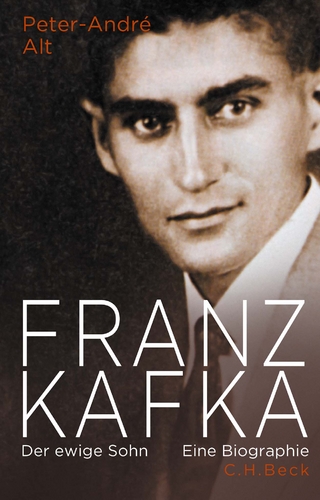
Becoming an Academic Writer
SAGE Publications Inc (Verlag)
978-1-4522-0386-7 (ISBN)
- Titel erscheint in neuer Auflage
- Artikel merken
Becoming an Academic Writer helps you gain control over writing and publishing, master specific aspects of academic writing, and improve your productivity. Patricia Goodson′s book offers weekly exercises and tools to achieve these goals. The exercises are grounded in a theoretically-sound and empirically-based mode comprising a set of behavioural principles (e.g., writing regularly, separating generating from editing) and specific practices (weekly exercises) which ensure success.
Based on the work of writing theoretician Peter Elbow, the empirical research done by Robert Boice (and others) on writing productivity of college professors, and the research into the practice patterns of elite performers (such as Olympic athletes), the principles and practices have been developed and tested over time.
Inside you′ll find:
Exercises tailored to specific segments of academic papers and reports
Tips for ESL Writers boxes, providing additional support.
This book uniquely combines these successful principles with a set of original exercises applicable to the writing needs of academics as well as students.
Patricia Goodson is professor of health education in the Department of Health & Kinesiology at Texas A&M University (TAMU). She obtained a bachelor’s degree in Linguistics (from Universidade Estadual de Campinas) and a master’s in Philosophy of Education (from Pontifícia Universidade Católica de Campinas) in Brazil; a master’s in General Theological Studies (from Covenant Theological Seminary) and a PhD in Health Education (from the University of Texas at Austin) in the United States. At TAMU, she has taught mostly graduate-level courses such as Health Behavior Theory, Health Research Methods, Health Program Evaluation, Health Education Ethics, and Advanced Health Behavior Theory. In 2007, while acting as associate dean for Graduate Program Development, she created and implemented a college-wide writing support service for graduate students, based on the POWER model described in this book. Currently, as director of the College of Education and Human Development’s Writing Initiative (POWER Services), she offers Basic and Advanced Writing Studios for graduate students in the college, on a regular basis, and occasionally teaches writing workshops for faculty at Texas A&M and other universities. Dr. Goodson has won several department-, college-, and university- level awards for her teaching and research. In 2012 she was awarded the title of Presidential Professor for Teaching Excellence at Texas A&M University—one of the highest teaching awards at that university. Also in 2012, she became the university’s sole nominee for the Piper Professor Award, a state-level recognition for teaching. While she considers mentoring graduate students the most fulfilling part of her career, a couple of research interests vie for her attention. Her research focuses on topics such as sexual health of adults and adolescents, the history of the HIV/AIDS epidemic, and public health genomics. She has published extensively in high-impact journals, has reviewed for several prestigious publications, and has served as book review editor for The Journal of Sex Research. One of her intellectual passions is theory, and her “other” book presents a critique of health education’s current use of theory in both research and practice.
Chapter 1. Get Ready to Practice
Part I. Practice Becoming a Productive Academic Writer
Chapter 2. Establish and Maintain the "Write" Habit
Chapter 3. Practice Building Academic Vocabulary
Chapter 4. Polish the Grammar
Chapter 5. Get Feedback
Chapter 6. Edit and Proofread
Part II. Practice Writing Sections of Journal Articles, Research Reports, and Grant Applications
Chapter 7. Exercises for Writing Introductions, Purpose Statements, or Specific Aims Sections
Chapter 8. Exercises for Writing the Methods Section
Chapter 9. Exercises for Writing the Results/Findings Section
Chapter 10. Exercises for Writing Discussion or Conclusion Section
Chapter 11. Exercise for Writing Abstracts
Afterword
Appendix: Additional Resources
Author Index
Subject Index
| Verlagsort | Thousand Oaks |
|---|---|
| Sprache | englisch |
| Maße | 152 x 228 mm |
| Gewicht | 340 g |
| Themenwelt | Geisteswissenschaften ► Sprach- / Literaturwissenschaft ► Literaturwissenschaft |
| ISBN-10 | 1-4522-0386-5 / 1452203865 |
| ISBN-13 | 978-1-4522-0386-7 / 9781452203867 |
| Zustand | Neuware |
| Haben Sie eine Frage zum Produkt? |
aus dem Bereich



